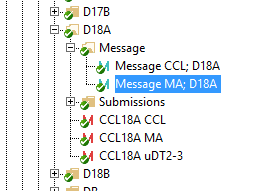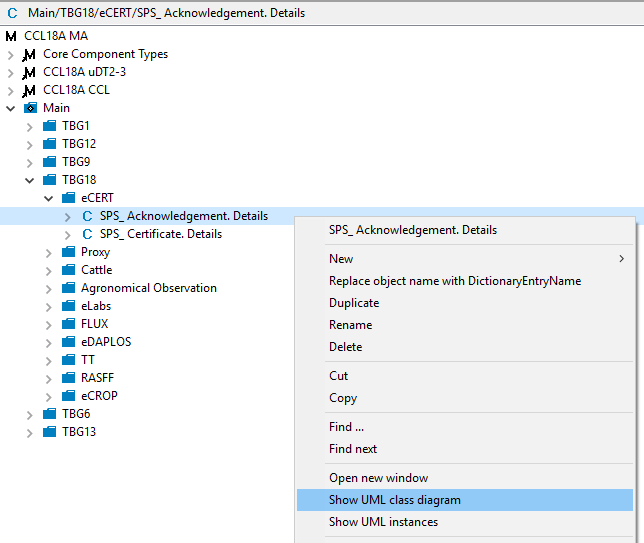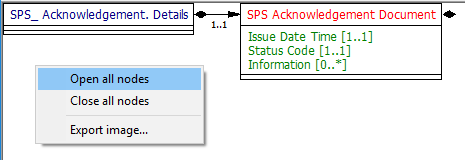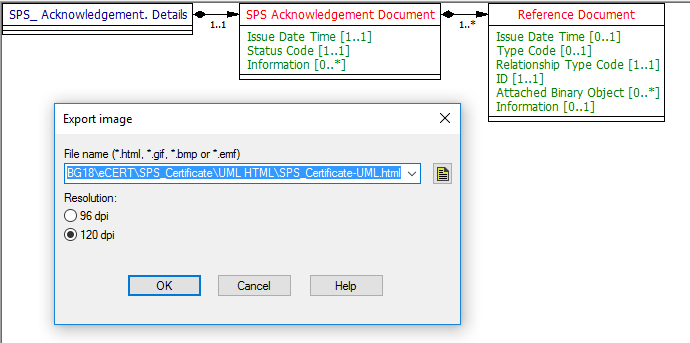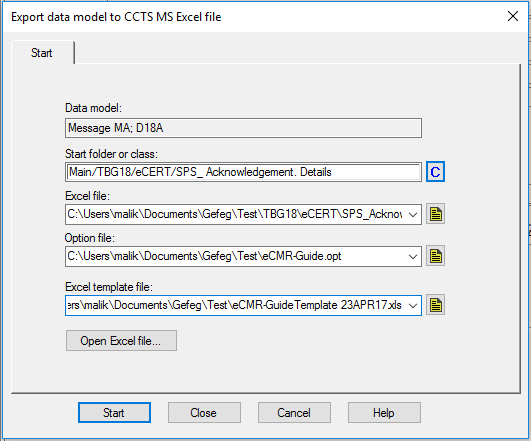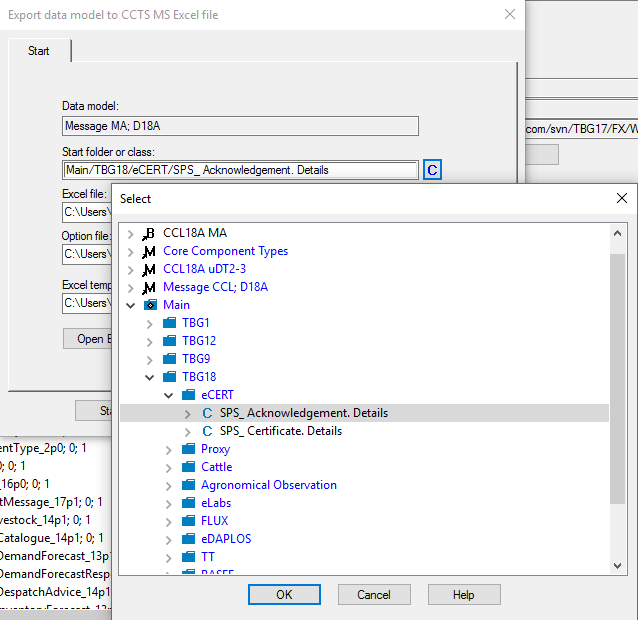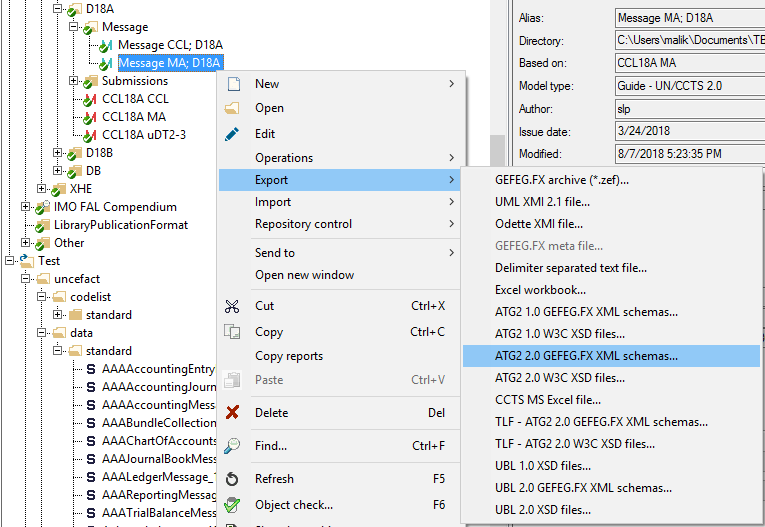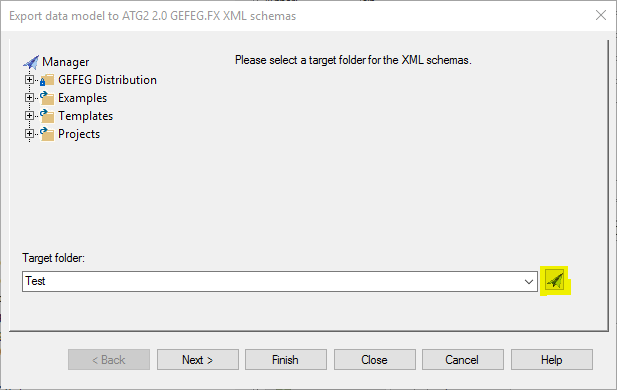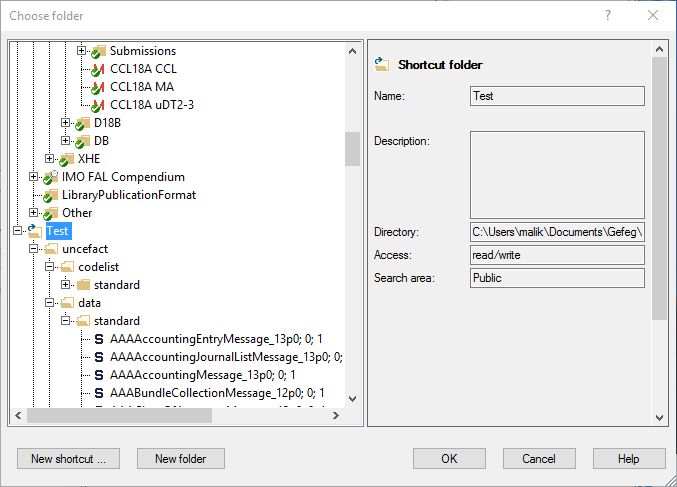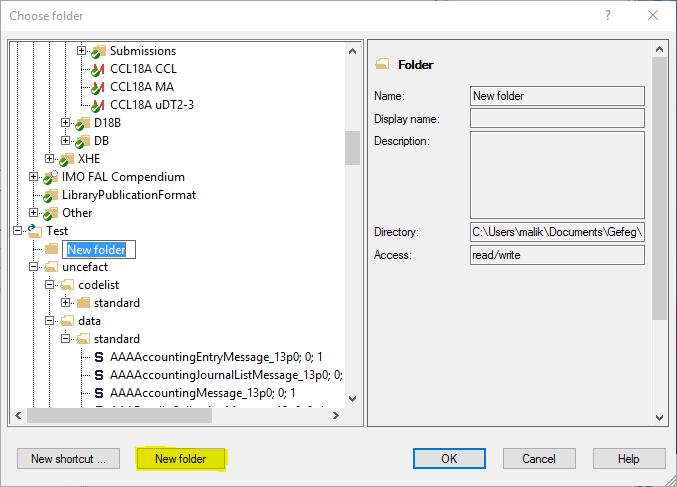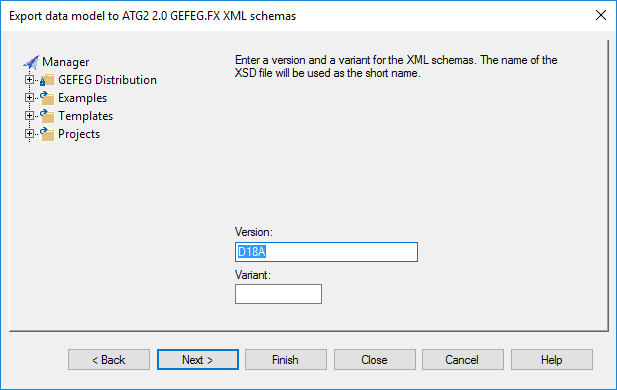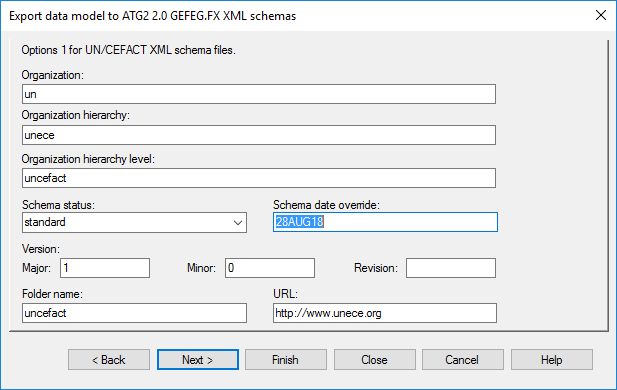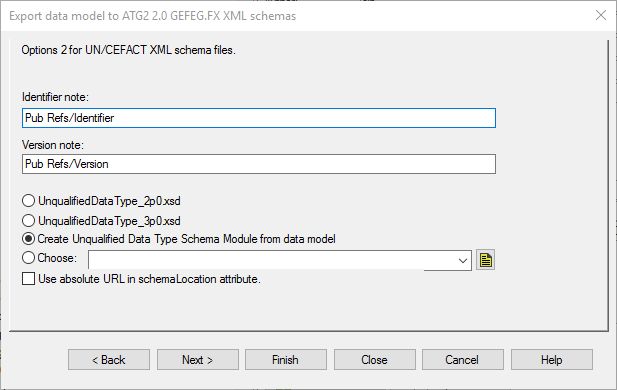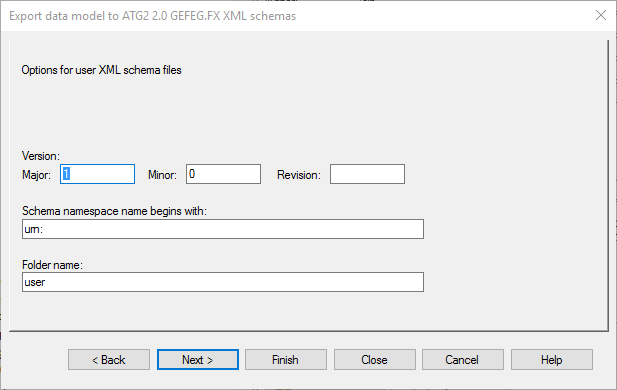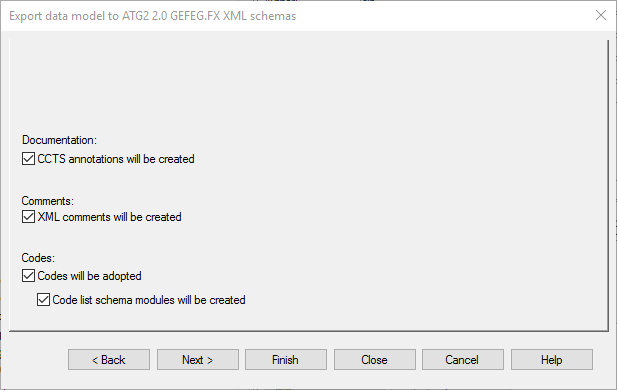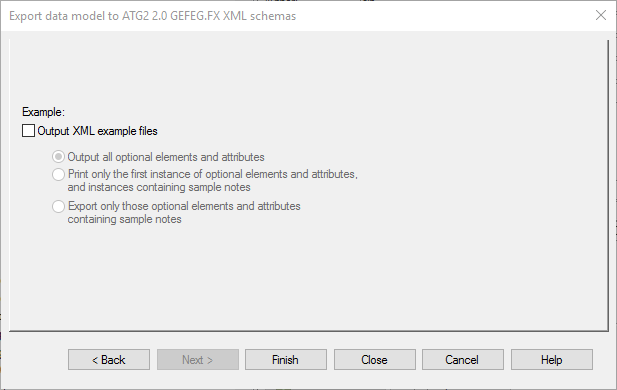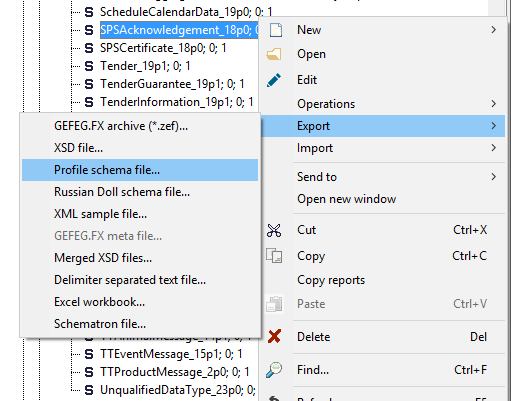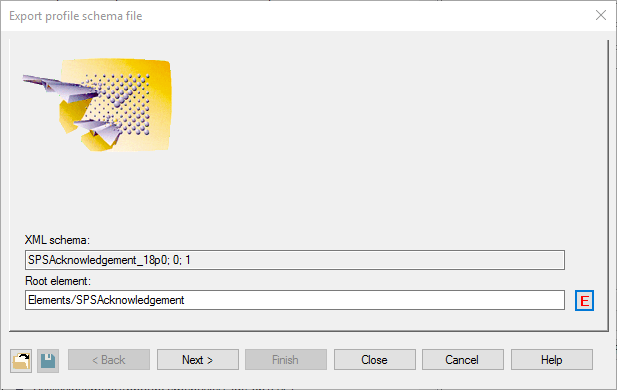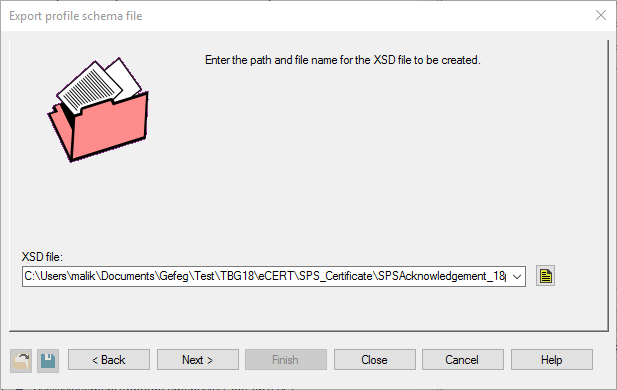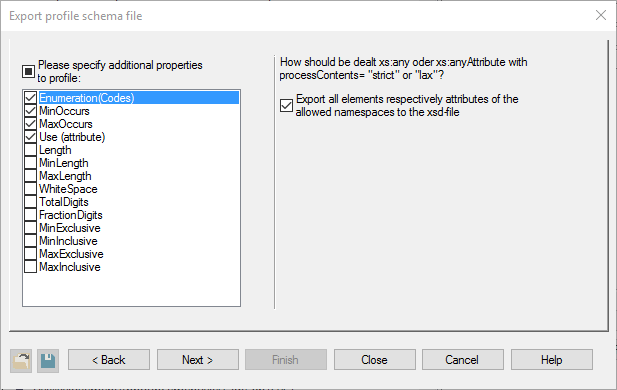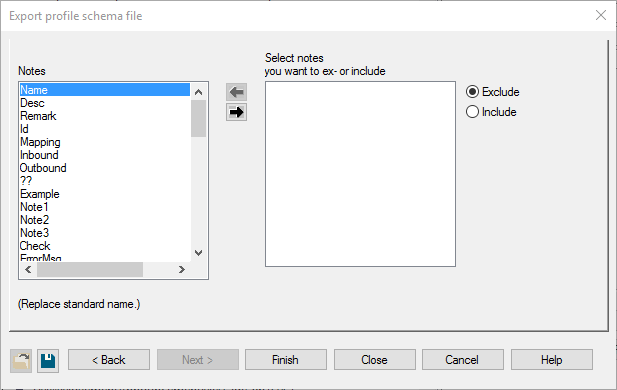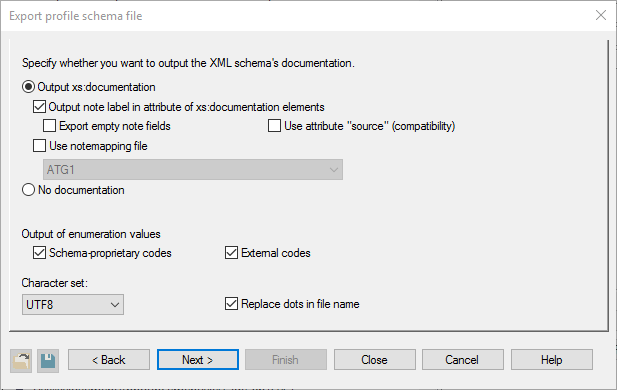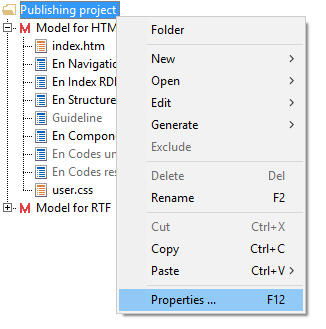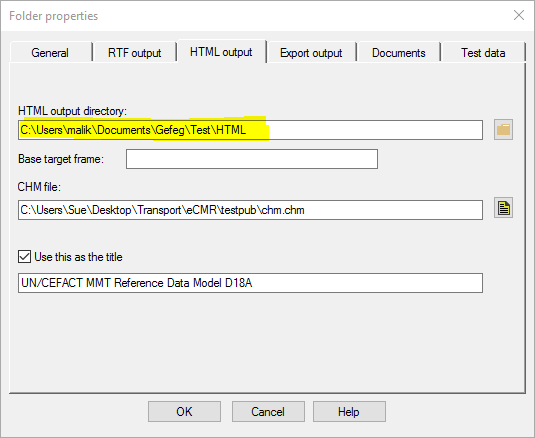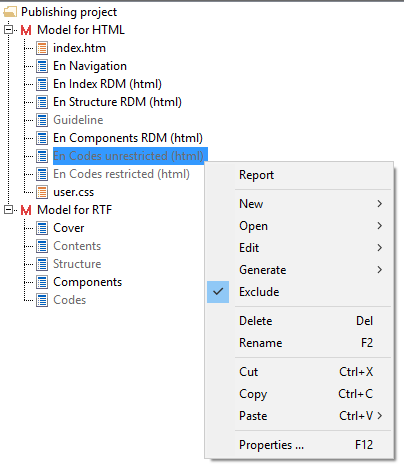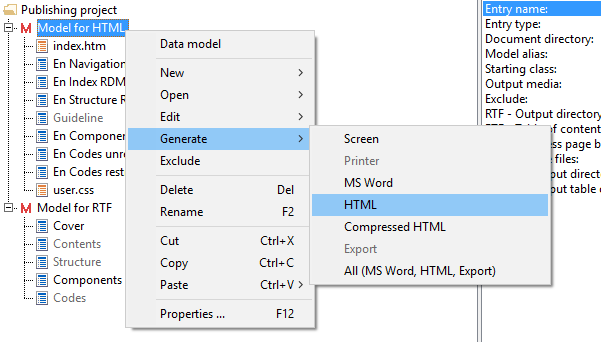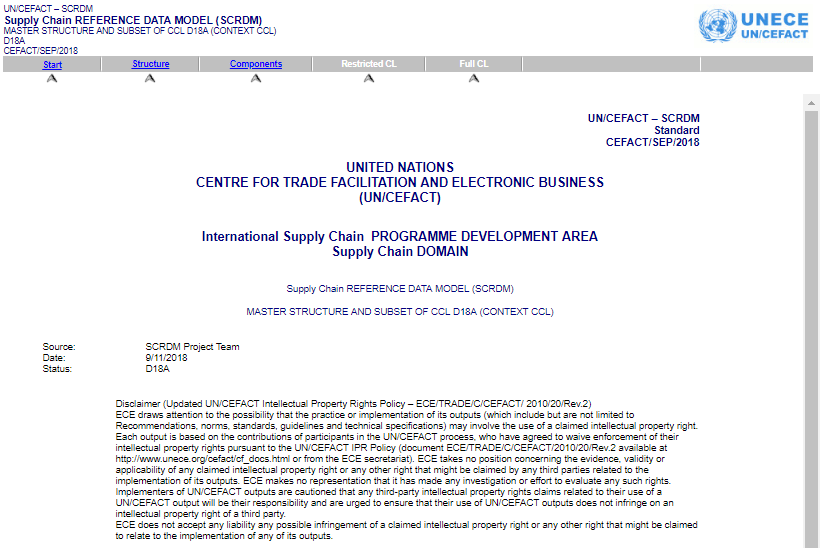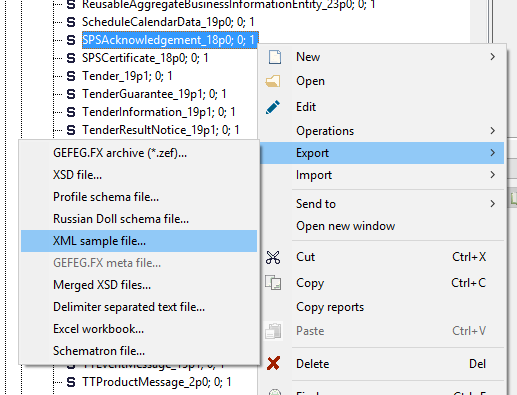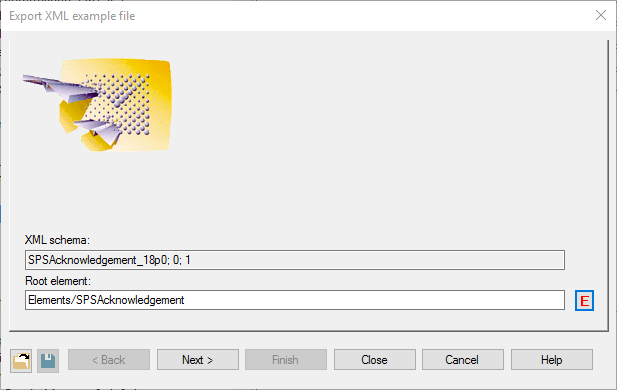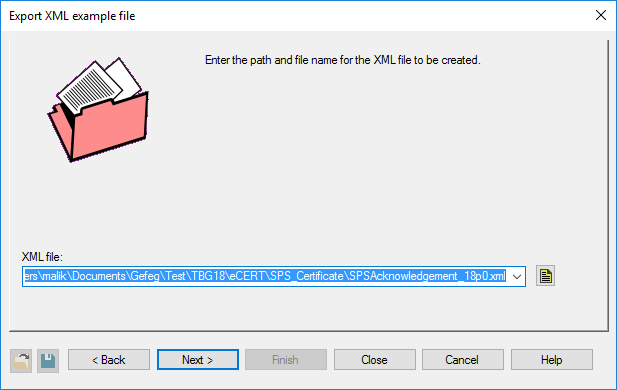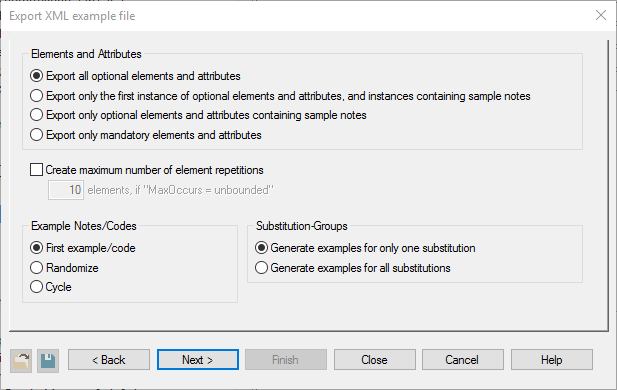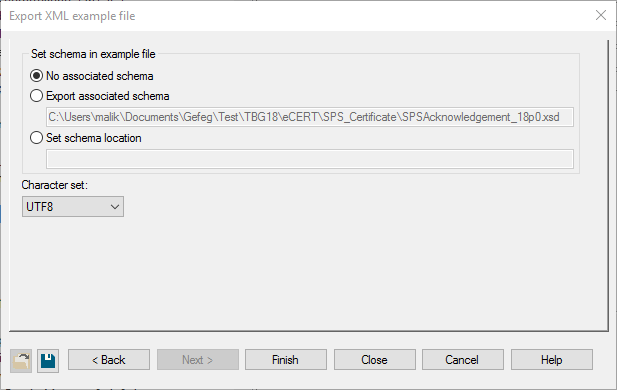Table of Contents
Summary
For each messages (128), at the end of publication cycle (twice per year) produce the folllowing files:
- UML Diagram / Export CCL/18MA export
- XLS Guideline structure / CCTS Excel E using option file
- Xsds Zip profile schema / profile schema .xsds Test export xsd
- HTML Structure report using .rep file
- XML sample files
Outputs
Examples in this guide are based on TBG18/eCERT/SPS_Acknowledgement message
UML Diagram
In TBG17REP repository, open TBG17REP/FX/WorkingLib/D18A/Message/Message MA
Select appropriate message and from the context menu "Show UML class diagram"
On UML Class Diagram, open context menu and by clicking on "Open all nodes" show the complete Class Diagram
Click on "Export Image" (this menu item is available only in the diagram area, to be sure it's active, try it in top left corner or over some of the class boxes)
Select desired format, .html option will cut diagram into grid of .gif pictures and put them together using HTML Table elements
SPS_Acknowledgement-UML-HTML.zip
which can be then printed into PDF file (depends on the size of the diagram)
EXAMPLE OUTPUT SPS_Acknowledgement-UML.pdf
XLS Guideline structure
In TBG17REP repository, open TBG17REP/FX/WorkingLib/D18A/Message/Message MA
Using Option *.opt file and Excel template file *.xls
Click on C next to "Start folder or class" to select the message
Xsds
First, we must generate XML schema, based on which we will generate other files
In TBG17REP repository, open TBG17REP/FX/WorkingLib/D18A/Message/Message MA
From the context menu select Export → "ATG2 2.0 GEFEG.FX XML schemas"
Select output files location
If needed, create a new file structure
Fill version and use following optins (mostly defaults)
From previously produced schema, select desired message and from context menu Export it into "Profile Schema file"
Use defaults
Select
- Enumerations(Codes)
- MinOccurs
- MaxOccurs
- Use (attribute)
Click on Finish
Use defaults
Export will produce set of *.xsd files
That may be zipped into one, for example SPSAcknowledgement-XSDs.zip file for publication
EXAMPLE OUTPUT SPSAcknowledgement-XSDs.zip
HTML Structure report
(for now available only for Reference Data Models - MMT and SCRDM)
In TBG17REP repository, open TBG17REP/FX/Reference Data Models/SCRDM/D18A/Context/SCRDM 18a Context BUY Master
In TBG17REP repository, open TBG17REP/FX/Reference Data Models/MMT/D18A/Context/MMT 18a Context SHIP Master
Open appropriate Publishing Project (.man) - Documentation RDM.man
Before the export make sure your output directory exists and is accessable
From Publishing Project context menu, select Properties
in HTML output tab check or change HTML output directory
If you need to exclude some part of the export (make link inactive) from the context menu on the item, select Exclude
on Model for HTML from the context menu select Generate - HTML
Export will take a few minutes and generate large number of HTML and related files to the output directory,
Example of HTML under index.html - Start:
EXAMPLE OUTPUT SCRDM HTML 11092018.zip
XML sample files
From previously produced schema, select desired message and from context menu Export it into "XML sample file",
For Export XML Example file options, use all defaults
EXAMPLE OUTPUT SPSAcknowledgement_18p0-SampleFile.xml

